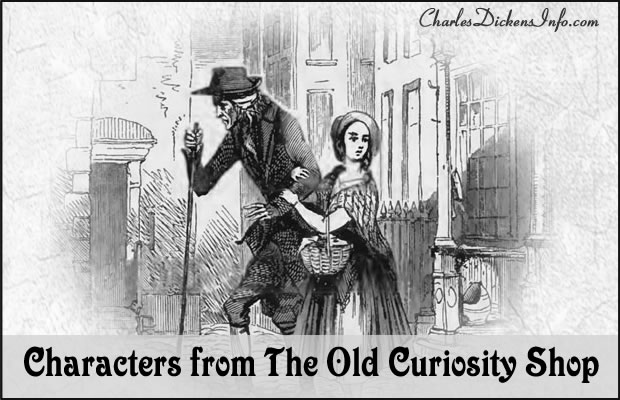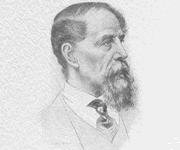The Old Curiosity Shop
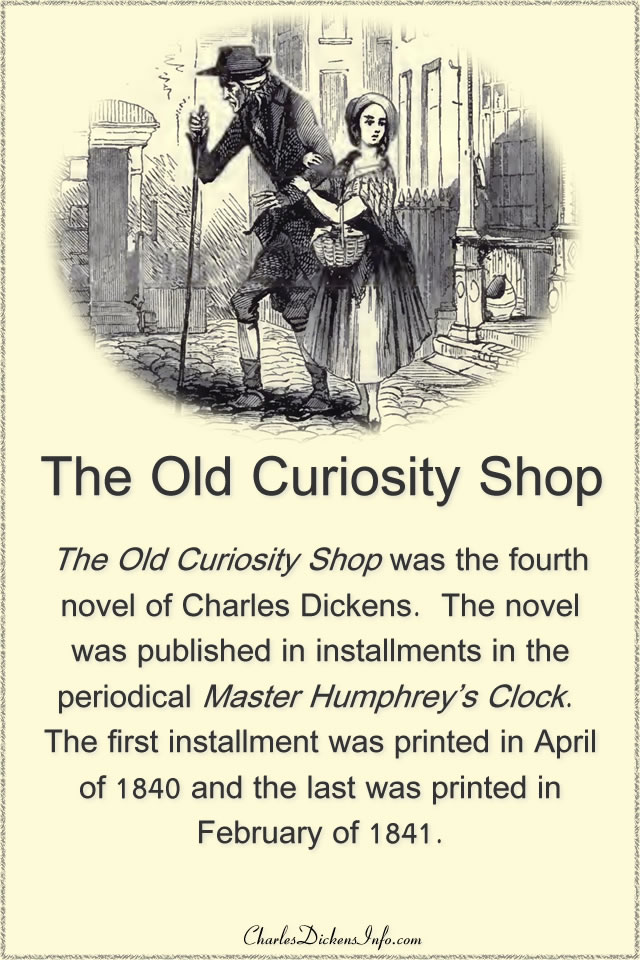
Updated on January 9, 2025 – Published July 5, 2012
The Old Curiosity Shop was the fourth novel of Charles Dickens. The novel was published in installments in the periodical Master Humphrey’s Clock.
The first installment was printed in April of 1840 and the last was printed in February of 1841.
Table of Contents
The Old Curiosity Shop – Dickens’s Life At The Time
1837 was a big year for Charles Dickens. The first of Dickens’s 10 children, Charles Culliford Boz Dickens, was born. Mary Hogarth, Catherine’s sister, died. Also, the publication of Oliver Twist began.
The next year saw another addition to the family in the form of a daughter, Mary Dickens. Publication of Nicholas Nickleby also began that year.
In 1839, another daughter, Kate Dickens, was born.
Publication of The Old Curiosity Shop began in 1840.
Barnaby Rudge was published in 1841. Charles and Catherine toured Scotland that year. Last, but not least, their son, Walter, was born.
In 1842, Charles and Catherine traveled to America. Late in 1842 or early in the next year, Dickens began work on Martin Chuzzlewit.
Is Little Nell’s Death Overly Sentimental?
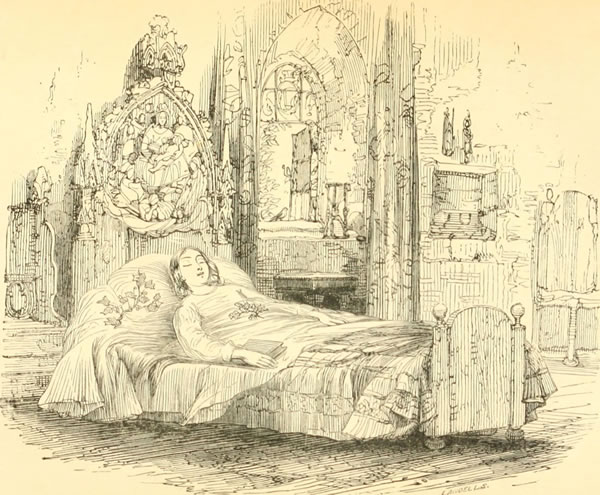
Little Nell
During the novel, Little Nell’s health deteriorates. The journey to the countryside is a one-way trip for Nell and she dies at the end of the novel.
At the time of its writing, it’s rumored that people waited on the docks of New York for the last installments of The Old Curiosity Shop. When the ship carrying the magazines arrived people in the crowd asked, “Is Little Nell dead?”
Many people have powerful reactions to Nell’s death in The Old Curiosity Shop. However, that reaction varies widely from person to person.
Oscar Wilde, the author of The Importance of Being Earnest and The Picture of Dorian Gray, said of the novel, “One must have a heart of stone to read the death of Little Nell without laughing.”
Little Nell and Mary Hogarth
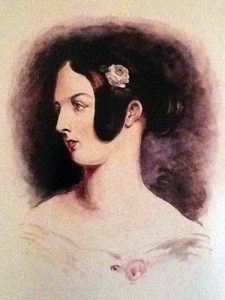
Portrait of Mary Hogarth aged 16
The death of Little Nell traumatized Dickens. As he was writing the novel, he felt as though he were experiencing the death of one of his children.
It also brought back painful memories of the death of his sister-in-law, Mary Hogarth.
In 1837 Mary Hogarth was seventeen, pretty and living with her sister Catherine and Catherine’s husband, Charles Dickens. Mary was a favorite with the couple and had become like a little sister to Charles.
On the evening of May 6th Mary went with the couple to the St. James Theatre. The group returned late in the evening, and Mary retired for the night.
Shortly after that Dickens heard a cry from Mary’s room. She was ill. Despite her doctor’s care, Mary passed away in Dickens’s arms on May 7th.
He had her tombstone inscribed with these words, “Young, beautiful, and good, God in his mercy numbered her with His angels at the early age of seventeen.”
Dickens wrote to his friend, John Forster, about Little Nell’s death, “Old wounds bleed afresh when I think of this sad story.”
Themes of The Old Curiosity Shop
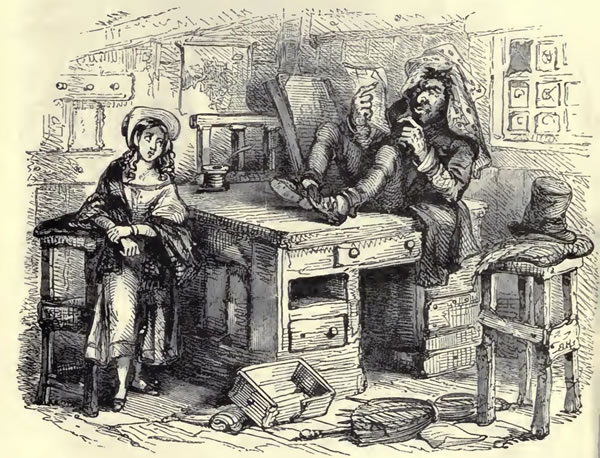
Little Nell and Quilp
In the preface to The Old Curiosity Shop Dickens wrote:
I had it always in my fancy to surround the lonely figure of the child with grotesque and wild, but not impossible companions, and to gather about her innocent face and pure intentions, associates as strange and uncongenial as the grim objects that are about her bed when her history is first foreshadowed.
Dickens indeed carried out his fancy with The Old Curiosity Shop. The book is a study in contrasts:
- Youthful Little Nell versus the old curios and her elderly grandfather at the Old Curiosity Shop
- The goodness and virtue of Little Nell as compared to the evil Quilp
- Little Nell acting like an adult when her grandfather can’t cope
- The masculine qualities of Sally Brass as well as the feminine qualities of Sampson Brass
- The passivity of Nell versus the energy of Quilp
Another theme is that of family. Little Nell and her grandfather are devoted to one another. Little Nell would do anything for her beloved grandfather, including taking a journey that proves to be her undoing.
“If you are sorrowful, let me know why and be sorrowful too; if you waste away and are paler and weaker every day, let me be your nurse and try to comfort you. If you are poor, let us be poor together; but let me be with you, do let me be with you; do not let me see such change and not know why, or I shall break my heart and die.
More About The Old Curiosity Shop
Collection of Quotations from The Old Curiosity Shop
Shop For The Old Curiosity Shop by Charles Dickens
- The Old Curiosity Shop by Charles Dickens - Books
- The Old Curiosity Shop by Charles Dickens - Movies or TV


